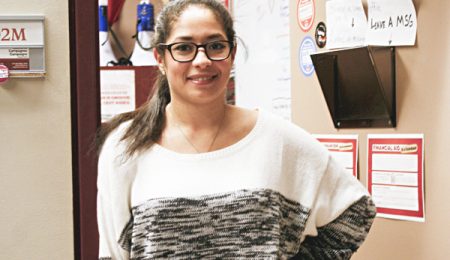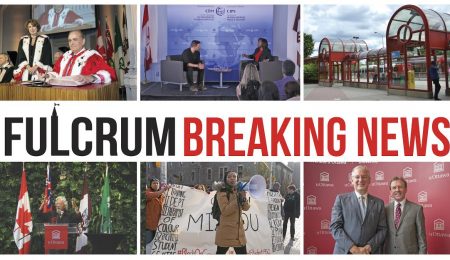Romeo Ahimakin previously lost in SFUO elections, other candidates upset about selection
The Student Federation of the University of Ottawa (SFUO) ratified Romeo Ahimakin as the vice-president of services and communications for the 2015-16 year at the April 8 meeting of the Board of Administration (BOA), but several other candidates are questioning the process.
“I feel like they already knew who they were going to pick, and the application process was simply a formality,” said Stephane Mukunzi, former president of the Political and International Studies Students’ Association (IPSSA). Mukunzi said he was qualified for the position because of previous experience as a communication officer, as president of a student federation, and volunteering for the SFUO.
“But apparently I was not qualified enough to even get an interview. I contacted the SFUO to know why they did not give me an interview, but I haven’t received an answer yet,” he said, adding that he won’t know now since the previous executive is out of office.
The vice-president of services and communications position was vacant following the SFUO elections in February, as all the candidates failed to pass their bilingualism tests. Ahimakin ran in the election as part of the Impact slate for the vice-president social position but lost to Hadi Wess by 39 votes.
The SFUO put out an ad for the vice-president of services and communications on March 27, with an April 1 deadline.
The BOA ratified Ahimakin as the vice-president of services and communications on April 8, upon recommendation of the five-person selection committee. The committee consisted of three former SFUO executives, Chris Hynes, Nicole Desnoyers, and Dave Eaton, as well as BOA members, Emily McBain-Ashfield and Quinn Blue.
Ahimakin said he looks forward to working with the other members of the executive. “We have the chance to work on so much different challenges and issues on our campus to make sure that next year we cater to the student community and we have strong engagement,” he said.
He also addressed the fact that he had previously lost in the SFUO elections, pointing out that it was close race, therefore he still had “immense support” from students.
Ahimakin is also the first international student to be voted onto the SFUO executive. “Our job for all of us is to work for the best interest of all students on campus… me being an international student too, I know the immense challenges international students face,” he said, citing higher tuition fees, and lack of employment opportunities.
Some candidates raised the issue of the short timeline to apply for the position.
“My main point of contention would be the overall rushed nature of their hiring process,” wrote Adrian Clarke, former vice-president internal of IPSSA in an email to the Fulcrum. “I was called on Thursday, April 2 to set up a time for an interview on Easter Monday, which in my opinion isn’t exactly the most accessible day.”
Megan Beretta, former director of communications of IPSSA said the short timeframe also meant she wasn’t able to perform her testing because of a “firm schedule” at her co-op position.
She was given a testing date of April 7, the day before the BOA meeting, but couldn’t attend and tried to arrange an alternate date.
“Our ‘arrangement’ was specifically that if no other candidate succeeded in their interviews, they may arrange alternate language testing for me, but there were no guarantees,” said Beretta, adding she never heard back from the selection committee after telling them the lack of notice made the situation impossible for her.
Hynes, former vice-president of university affairs of the SFUO told the Fulcrum in a previous interview that the deadline was short because the selection committee had been confirming protocol in the SFUO constitution, drafting terms of reference, and writing up the online callout.
He did not respond to the Fulcrum’s request for an interview on the selection of Ahimakin in time for publication.






